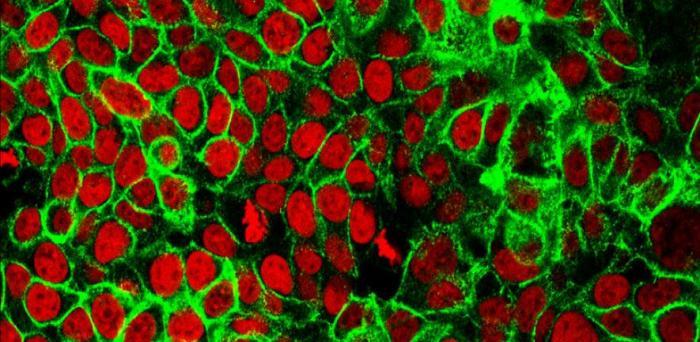In the coming years, this method and others based on this approach could lead to tests that more accurately determine if a patient is likely to relapse after treatment and could pave the way for the development of pinprick home blood tests to monitor patients. The research, funded by Cancer Research UK, is published in the journal Science Translational Medicine
The technique uses personalised genetic testing of a patient’s tumour to search blood samples for hundreds of different genetic mutations in circulating tumour DNA (ctDNA); DNA released by cancer cells into the bloodstream.
Combined with new methods to analyse this data to remove background noise and enhance the signal, the team was able to reach a level of sensitivity that in some cases could find one mutant DNA molecule among a million pieces of DNA – approximately ten times more sensitive than previous methods.
Dr Nitzan Rosenfeld, senior group leader at the Cancer Research UK Cambridge Institute who led the team that conducted this research, said: “Personalised tests that can detect if cancer is still present, or find it early if it is returning, are now being tested in clinical trials.
While this may be several years away from clinical use, our research shows what is possible when we push such approaches to an extreme. It demonstrates that the levels of sensitivity we’ve come to accept in recent years in relation to testing for ctDNA can be dramatically improved. At present this is still experimental, but technology is advancing rapidly, and in the near future tests with such sensitivity could make a real difference to patients.”
Detecting ctDNA in blood samples is what is known as a ‘liquid biopsy’. It allows doctors to find out more about a patient’s cancer without the need for invasive surgery. The technique is important for monitoring cancer patients, particularly after they’ve received treatment, as it can be an indicator of whether the treatment was successful and if the patient might relapse. In some situations, other types of tests can be used to detect some cancers before they display any symptoms or show up on a scan.
Image: Human Colon Cancer Cells
Credit: NCI Center for Cancer Research
Reproduced courtesy of the University of Cambridge
